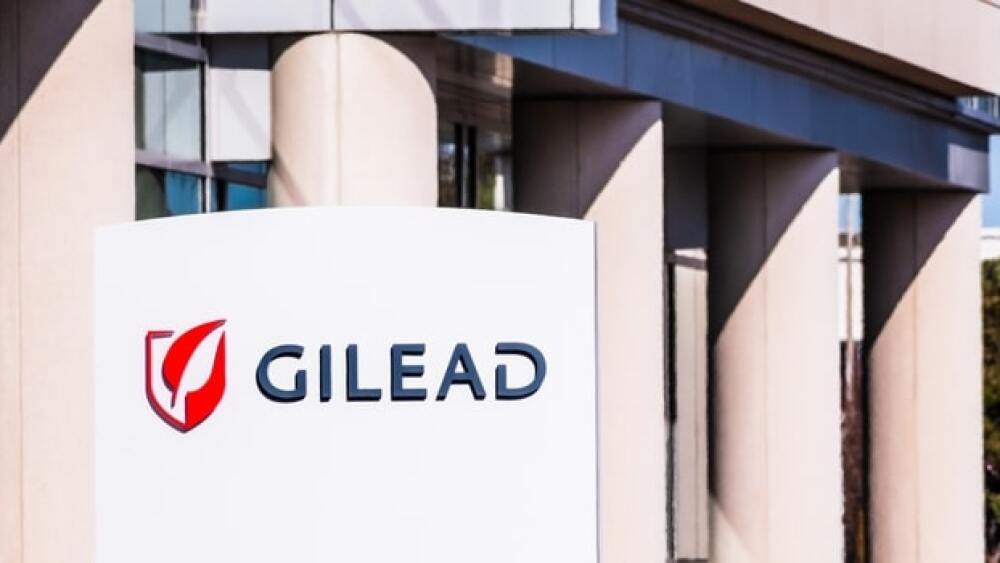Gilead Sciences announced it exercised its options to three of Arcus Biosciences’ programs. Two are anti-TIGIT molecules, domvanalimab and AB308, and the other is etrumadenant and quemliclustat.
Sundry Photography/Shutterstock
Gilead Sciences announced it had exercised its options to three of Arcus Biosciences’ programs. Two are anti-TIGIT molecules, domvanalimab and AB308, and the other is etrumadenant and quemliclustat. The two companies have also added a research collaboration deal. Arcus shares popped 15% at the news.
In May 2020, the two companies inked a 10-year partnership deal to co-develop and co-commercialize various products in Arcus’s pipeline. Arcus focuses on mechanisms of tumor evasion of the immune system as well as drugs that target cell-intrinsic pathways related to cancer growth and metastasis. TIGIT is another checkpoint receptor, and they are also developing anti-PD-1 inhibitors.
Under the terms of the 2020 deal, Gilead paid Arcus $375 million at closing, which consisted of a $175 million upfront payment and a $200 million equity investment. Arcus was then eligible for up to $1.225 billion in opt-in and milestone payments. Gilead picked up access to the company’s immuno-oncology products, including rights to zimberelimab, and an opt-in to AB154, AB928 and AB680, upon payment of an opt-in fee ranging from $200 million to $275 million per program. If Gilead opted into the AB154 program, Arcus was eligible for up to $500 million in U.S. regulatory milestones. Gilead otherwise had the right to opt-in to all other programs coming out of Arcus for the next 10 years at $150 million per program after Arcus delivered a qualifying data package.
In the new deal, domvanalimab is an Fc-silent anti-TIGIT antibody currently in Phase II and III trials in non-small cell lung cancer (NSCLC). AB308 is an Fc-enabled anti-TIGIT antibody in Phase I. Etrumadenant is a dual adenosine A2a/A2b receptor antagonist now in Phase I and II trials in NSCLC, colon cancer and prostate cancer. Quemliclustat is a small molecule CD73 inhibitor in Phase I for metastatic pancreatic ductal adenocarcinoma (PDAC).
Gilead reported they were encouraged by early clinical data from each of the three programs. By moving early, the companies can speed clinical development. They provide an example of Gilead looking to evaluate chemotherapy-free regimens with Trodelvy (sacituzumab govitecan-hziy) in combination with drugs from the Arcus portfolio. The deals also provide flexibility for Gilead to test other Arcus drugs with other drugs from its own portfolio.
“Gilead is pursuing some of the most promising mechanisms of action in oncology today, with the aim of achieving better treatment outcomes for more patients,” said Daniel O’Day, chairman and chief executive officer, Gilead. “The addition of three mid-to late-stage clinical programs into our oncology pipeline significantly expands the number of transformational medicines we can potentially deliver to people with cancer, while also enabling our pursuit of novel combinations.”
Under the terms of this new Option, License and Collaboration Agreement, Arcus will receive options totaling $725 million. They will co-develop the drugs and share the global costs. If the molecules Gilead optioned receive regulatory approval, they will co-commercialize and equally share in the profits in the U.S. Gilead holds exclusive rights outside the U.S., with exceptions to any of Arcus’s existing collaboration deals. Gilead will pay Arcus tiered royalties.
This also amended the 2020 deal. Arcus may need to operationalize at least half of the clinical trials, splitting costs with Gilead. The ex-U.S. royalties for the three programs were decreased from the low twenties to mid-teens. Arcus will lead discovery and early development of drugs against two novel research targets picked by both companies. And after the close, the $100 million option continuation payment expected in 2022 will not be made by Gilead.
“Through the expanded partnership, we will be able to leverage the combined portfolios of the two companies to enable rational exploration of unique and innovative combination therapies within a single integrated program,” said Terry Rosen, Arcus’s chief executive officer. “The early exercise of Gilead’s options will now ensure that Arcus is well-positioned to accelerate and expand clinical development activities so that it may deliver benefit to patients with some of the most difficult to treat cancers, including pancreatic, lung, colon and prostate.”
Featured Jobs on BioSpace





